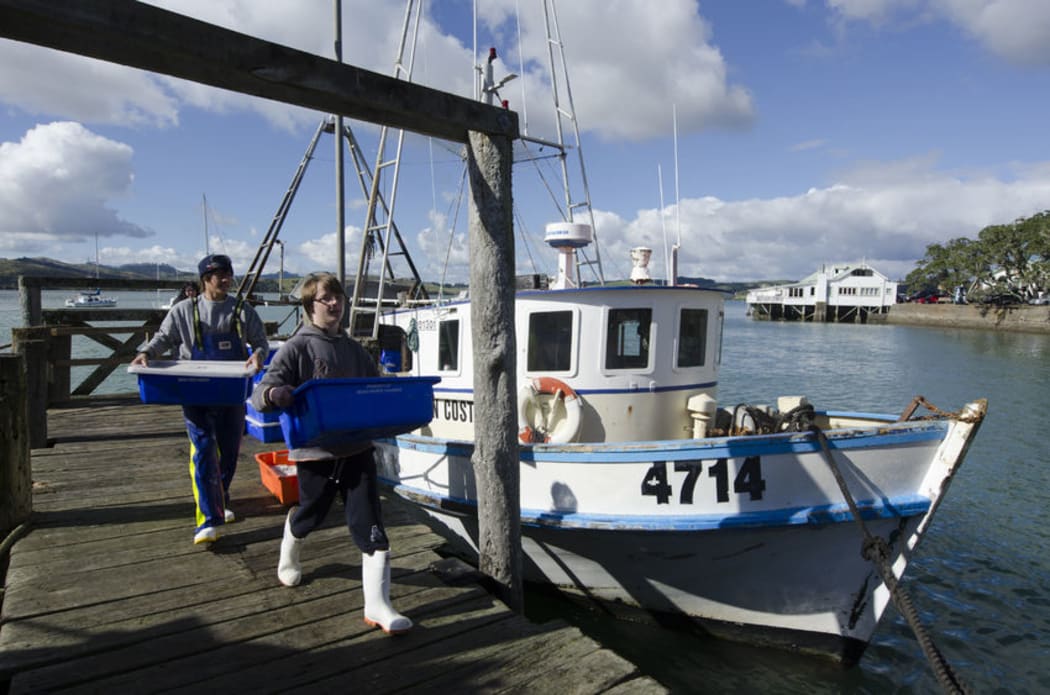New Zealand is behind the times when it comes to putting cameras on fishing boats, Forest and Bird says.

An email sent by an MPI manager suggests that if fish dumping could be stopped "we would probably put half of the inshore fleet out of business overnight ..." Photo: 123RF
The environmental protection organisation pointed to Australia as a model of how cameras could be used effectively to cut down on the bycatch of birds and mammals such as dolphins.
That was in contrast to the New Zealand government, which was considering scrapping the cameras altogether.
Australia first began trialling cameras on its tuna boats two-and-a-half years ago. The country's first reports on the difference they had made showed a 700 percent increase in reporting by skippers of bycatch of seabirds and mammals.
Forest and Bird spokesperson Geoff Keey said the cameras forced fishers to be more honest in the way they reported bycatch.
"In Australia and also in New Zealand currently, fishers have to record bycatch in a log book.
"What they found in Australia is when there was a camera on the boat so that what was being reported in the log book could be verified against what the camera saw, people were suddenly a bit more honest, or actually a lot more honest."
Geoff Keey said it was not just Australia employing the technology - five Pacific Island countries were using it.
That included Fiji, which had 17 long lining vessels equipped with cameras and planned to roll them out on another fifty boats. Mr Keey compared that to New Zealand where only 10 percent of boats had observers on board, leaving the activities of the rest of the fleet shrouded in secrecy.
With the new Fisheries Minister, Stuart Nash, now saying he was willing to consider dumping installing cameras on boats altogether, Mr Keey said he was worried New Zealand could end up being left behind by the rest of the world.
"MPI (Ministry for Primary Industries) itself wants to roll this out, they've shown real commitment to the programme, what I think we're seeing here is push back from the fishers. So the government will need to stick to their guns and say transparency is important, transparency is vital."
Forest and Bird seabird advocate Karen Baird said many fishers were equally worried the government might dump the technology.
She's been working with fishers in the Hauraki Gulf on a trial of cameras aimed at detecting the accidental capture of black petrels, which she said had been extremely successful.
"They are concerned that this proposal by the government to dump cameras altogether could spoil the progress that we've already made. They're sure that cameras are the way forward if they want to have, and be able to show that they have, sustainable fisheries."
Fisheries Inshore New Zealand represents most of the roughly 600 boats plying the waters close to shore.
Its chief executive, Jeremy Helson, said there had been no pressure applied from the industry on Stuart Nash to dump the idea of cameras.
"I think minister Nash has made a very good decision to just take a deep breath and reconsider what it is that we want to achieve and how best to do so and we're happy to engage in any further process."
As well as risking giving away the secret fishing spots guarded closely by his members, putting cameras on boats and asking fishers to pay for them would be unfair, he said.
"The government's earlier estimates were something in the order of $80 to $100 million, we believe it would be quite considerably more expensive than that and it's not clear to us that that sort of financial imposition is warranted."
The trial of cameras to monitor the capture of black petrels was an example of how the technology could be used well, he said, but he had doubts about its usefulness in detecting fish size and species.






